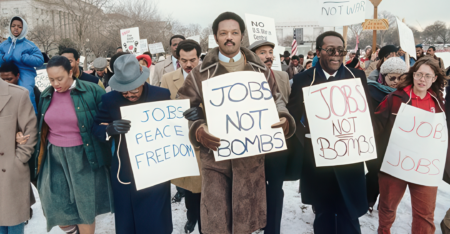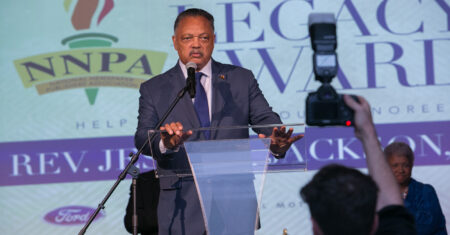By Stacy M. Brown
Black Press USA Senior National Correspondent
As the Trump administration renews its assault on social safety nets—from mental health care to housing and education—young Black Americans are migrating to cities that promise not only economic opportunity but community and freedom. The movement, experts say, reflects a modern Great Migration shaped by politics, culture, and survival. According to Apartment List’s 2025 Best Cities for Black Professionals report, Washington, D.C., Atlanta, San Antonio, Houston, and Dallas lead the nation in economic and professional prospects for Black Americans. The study, developed with the Black employee resource group Black@A-List, used data on employment, income, homeownership, and representation across key professions to determine where Black professionals thrive despite national headwinds.
Washington, D.C.: Power and Prosperity
Apartment List found that Washington, D.C., ranks first nationwide for economic opportunity among Black professionals, with a 92 percent employment rate and a median Black income of $52,988, the highest in the country. Roughly 28 percent of D.C.’s population is Black, and 51 percent of Black households own their homes, placing the District third nationally for Black homeownership. The report also noted that more than one-quarter of businesses in D.C. are Black-owned. With Howard University and the University of the District of Columbia producing a steady stream of graduates, the capital remains a key center for Black leadership and innovation, even as federal policies threaten to dismantle the very programs that sustain progress.
Atlanta: The Black Mecca Holds Its Crown
Atlanta earned the No. 2 ranking for best cities for Black professionals, leading the nation in “community and representation,” according to Apartment List. The city’s Black population makes up 36 percent of all residents, with a 93 percent employment rate and a 50 percent homeownership rate. Atlanta’s strength, the report said, lies in its deep infrastructure of Historically Black Colleges and Universities that include Spelman, Morehouse, Clark Atlanta, and Morehouse School of Medicine, all of which have cultivated generations of Black scholars and leaders. About 37 percent of local businesses are Black-owned, a number that continues to climb despite rising housing costs and gentrification pressures.
Houston and Dallas: Texas’s Twin Engines of Growth
In Texas, both Houston and Dallas ranked among the top five destinations for Black professionals. Houston’s business environment ranked third in the nation, with 21 percent of local businesses Black-owned and a strong representation of Black professionals across industries; 21 percent of the city’s teachers and doctors are Black. Apartment List noted that the median Black income in Houston is several thousand dollars above the national average. Dallas, with an 18 percent Black population and a 93 percent employment rate among Black residents, placed fifth nationally. Its Black median income of $43,632 and increasing share of Black-owned businesses—now 19 percent—shows the city’s growing reputation as a professional hub for young talent.
The Carolina Renaissance
Charlotte and Raleigh, North Carolina, also earned spots among the top ten. Charlotte ranked tenth overall for Black professionals, driven by job growth in banking, energy, and technology. Raleigh, part of the Research Triangle, continues to draw younger generations thanks to affordable housing, rising tech jobs, and the presence of HBCUs like Shaw University and St. Augustine’s. A Home & Texture analysis of the top cities for Black renters in 2025 similarly highlighted the Southeast as a magnet for young professionals, citing Atlanta, Raleigh, and Huntsville, Alabama, for their affordability, cultural richness, and expanding Black business scenes.
Chicago: Culture, Legacy, and Resistance
While Chicago faces economic challenges, it remains a beacon for Black culture and political engagement. The city’s deep legacy, from Bronzeville’s jazz clubs to the organizing power that gave rise to Barack Obama, continues to inspire young professionals determined to preserve and rebuild historically Black neighborhoods rather than abandon them to gentrification.
A New Great Migration
The pattern of movement is part of what House Beautiful described as a generational shift in its report The Cities Young People Are Flocking to in 2026. The publication noted that Gen Z and younger millennials increasingly choose cities that align with their values, prioritizing inclusion, sustainability, and community over corporate prestige. The trend mirrors the Great Migration of the 20th century, when millions of Black families fled the South for industrial jobs and personal safety. But this time, the exodus is less about geography and more about autonomy.
“Young Black professionals aren’t running from the South. They’re reclaiming it,” said one researcher familiar with Apartment List’s findings. “They’re moving where they can live, build wealth, and be free from the systems that have historically worked against them.” As the Trump administration doubles down on policies rolling back diversity efforts, health access, and economic equity, young Black Americans are charting a new map of resilience. Cities like Atlanta, Houston, D.C., and Raleigh have become what one new resident called “freedom zones,” or places where opportunity, community, and Black excellence are not just preserved but expanded. In a country veering toward authoritarian rule, this migration is both a strategy and a statement. It’s the next chapter in the long journey toward self-determination, one city at a time.







